It’s one of those earth-shifting, life-altering moments that remains forever embedded in our collective memory.
We will all probably remember what we were doing, where we were the night of November 25, 2016, as news broke about the death of infamous Cuba dictator Fidel Castro. That night, generations of Cuban-Americans who had witnessed or heard their loved ones relating stories of fear and oppression finally began to heal.
Shortly before that, however, an actor, director, and photographer based in Los Angeles, JeanPaul SanPedro, set out to create his own revolution– a revolution of using his camera lens to capture the strength, the resilience, and the beauty of his Cuban-American contemporaries. All are actors, directors– artists– like him. Although their personal thoughts and opinions, as well as their experiences, are as different as night and day, all seem to agree that the time has come for the archaic perceptions of Cubans and Cuban-Americans in the media to change.
I got to speak with several of these artists who are breaking ground in their industry, simply by breaking their silence– and striking a fearless pose.
JeanPaul SanPedro, JeanPaul SanPedro Photography
If you see the pictures, there’s a few actors there that you might not recognize, but they’ve done 42 independent films, but they’re not known, and they don’t get noticed by Hollywood, yet they’re very talented people. It doesn’t have to be all Andy Garcias. It’d be cool if he came, but it’s more about the struggle that we go through, which is a similar struggle [to the one] that they’re going through in Cuba.
To me, Raúl has been in power since about 2006, officially since 2008. They’re very much officially under that Castro law. I hope for the best; I hope to go back there one day, and it would be a freer country, and, you know, I would love to shoot a movie there one day, but we’ll see where that goes.
There’s a lot of people in Miami; I remember older people, my friends’ grandfathers, have like this very distinct wine bottle, like a four-foot-tall wine bottle, and it was saved. I was always like, ‘why don’t you guys drink that?’ They were like, ‘this is for the day Fidel dies.’ And a lot of people unfortunately passed before [they opened] that bottle, but a lot of people got to see that. I empathize with them, what a victory for them. To say that I understand exactly– I wasn’t there. I was born here, I was born in Miami. That’s what I know.
I wanted to show that with the pictures. I know Roberto Sanchez came from Cuba, I think in the eighties, and some people have been through it rough, and I think we did a good job with the pictures depicting ourselves as strong, powerful people.
I really wanted to stay away from anything cheesy, or as anything depicting us as what commercial media sees us as. Some people were like ‘oh, let’s put like a party with rum,’ and I was like, ‘no, I don’t want to get into the commonalities that people think of us. I just want us to be there, strong, and dress nice, dress sharp, and with a purpose, and I think we achieved that. The pictures have been really impactful. People have been writing me and writing these actors, and a lot of them I like to read, not so much about the pictures, but, ‘Wow, you look so classy, you look so strong, so elegant.'”
I’ve gotten E-mails and messages from people in Miami, people my age, who aren’t that vocal about the whole Cuba thing. Even people from Puerto Rico who live in New York who wrote me and said, ‘I love this series, it’s so powerful.’ I really think it’s because there’s a hunger on the whole in the Latino community to maybe start uniting. In this case, it’s art with people coming together, voicing their opinions, no matter at what cost.
There’s so many more roles now, why do women need push-up bras and huge accents to do a role? Either that, or it’s the very street Latina from New York, or the maid.
Latinos that make it here, they make it and then they feel so happy that they made it, that they feel afraid to speak their minds because they’re going to lose any position or status that they’ve arrived to, and I get that, because everyone has families and they have to make money, but we’re also suffering. It’s really our own fault, because we don’t unify. I don’t like to be seen as crying about it…it’s more about taking action.
Guillermo Jorge, Guillermo Jorge at IMDb
I was born in Mercy Hospital, in Coconut Grove, ‘Miami,’ Florida. My father was from Havana, Cuba, and my mom from the eastern part, Holguin. In my 13 years in L.A., I never really cherished where I come from. I feel like I received more help from non-Cubans than I ever did from my fellow countrymen.
Coming to L.A., I’ve always wanted to feel more American. I dove into this world of entertainment. I received the [stereotypical] responses when they heard I was Cuban. ‘Oh, I love Scarface; oh, you guys must be hot-tempered and passionate.’ I avoided my roots until the last 4 years. Maybe because I don’t ever really play Cuban, at USC, I was told I wasn’t white enough. I’ve played everything except Cuban. I have had resentment towards the Cuban community, the conservativeness about it, especially these past 4 months. I saw this as a way of tuning into my heritage and bonding with what I know.
My parents lost a lot in Cuba, especially my mother’s side of the family. My father came over to the U.S. through the Peter Pan flights- Like my dad said, with a little briefcase and a pair of shoes. He lived in Fort Wayne, Indiana in a basketball gym before heading down to Miami.
We’re a proud people who have endured loss and strife. We’ve shot up the American dream in government and entertainment, etc.
Somos pocos, pero somos fuertes.
Doris Morgado, Doris Morgado at IMDb
I was born in Caracas, Venezuela, where my family received political asylum after my grandfather was released from a Cuban prison for being against the communist government.
I love JeanPaul’s work and the vision of getting Cuban actors, who are super talented, in a sexy and sophisticated photo shoot. The offer was too great to pass [up]. It’s important to portray our look with that of our talent. As Hispanic actors, we are so diverse, so this shoot helps put us in a new light— a stronger, more brilliant light where we all shine.
My grandfather was a political prisoner in Cuba and we were lucky enough to be able to leave Cuba to ensure a better future for my brother and me. It wasn’t easy for them to leave everything behind, but thanks to that leap of faith and that courage, I’ve been blessed to have been raised in the U.S.
Projects like these are very important because Latinos can sometimes be placed in a small box of what society thinks of us, but we’re so much more then that.
Cubans are strong, beautiful, passionate, loving, and intelligent individuals. We have so much to offer to the community and especially to the world through the arts. We’re great storytellers because of the mixture of cultures and different ethnicities within our island. We are able to portray many different stories simply because our looks are so mixed and our story and our culture is so rich.
I think right now, we’re at a great place in history to allow the world to see us as we see ourselves. We are much more than the box that we are placed in because of our origin of birth. I’m excited that more and more projects are being made that are accepting and embracing our culture.
Carlos Gomez, Carlos Gomez on Twitter
So, I was born in New York city, but raised in Miami. With all the attention that Cuba is getting at the moment, we really don’t have a big acting community that is Cuban.
I’ve been doing this for over 20 years and I’m very proud of my heritage and thought it was a nice gesture to put it out there, where I was from. Both my parents are Cuban and even though I wasn’t born there, I grew up with a strong sense of culture that is still a big part of who I am.
It’s interesting all the dialogue about immigration. In the sixties, when all the Cubans came to the U.S. because of the political change, this country welcomed them. Very different what’s happening now with immigration and where it’s going. I just think what’s good about this project is that it lets people know that there are Latinos working in Hollywood from many cultures— Cubans, Puerto Ricans, Columbians, etc. I think Cuba is a mystery to a lot of people; many people just think of rum and cigars and overlook the fact that there are eleven million Cubans in Cuba today who are curious about the world. I think slowly, with Internet on the island, people will be able to see outside of Cuba and learn about other countries outside of the island. I had the opportunity to do an episode of “House of Lies,” the first American television show to shoot in Cuba since 1958. It was one of the most amazing jobs I had ever had. We worked with Cuban crews and it was beautiful seeing both American and Cuban crews working together. I really think the arts can bring any culture together. I hope for the Cuban people and artists in the country, that we can continue a dialogue to further exchange music, art, theater and dance between both the U.S. and Cuba.
Bertila Damas, Bertila Damas at IMDb
[I was born] on la calle Regla (street) in Luyano, Havana, Cuba, in the Clínica Hijas de Galicias .
Anytime that there’s an opportunity to gather with my Cuban friends, it’s always something I am interested in. It’s always fun and it is a chance to feel that feeling of being Cuban, to hear the sound of Cuban, which brings back the joys and the tribulations. In this case, it was truly a lovely honor to share with such a talented group and to connect with each other in the aftermath of Castro’s death.
[To me, it’s] as personal as it gets; it is the music that runs through the blood in my veins. My history, my ancestors, my heart. I don’t know a Cuban that does not have an interesting story to share.
Like every Cuban exile, I feel the pain of loss and separation as well as the continued hope for a Cuba Libre.
I consider myself fortunate and grateful that I have had a home in the U.S., a country that has offered me sustenance as well as the freedom to live my life as I have seen fit without hindrance.
The photo bears witness. It is an opportunity to document who, what, when, and where; that we were here and that we made a difference. I hope that there will be more work like this that will document those of us who are Cubans in entertainment as well as other industries. Perhaps the photos will serve as a hopeful inspiration for those that may follow us and their future.
I dream in Cuban, I dance in Cuban and I live in Cuban…
Ser Caribeña es ser el mar, las palmeras, y la azucar…es tener en mi sangre la historia de la esclavitud, la sangre del Siboney y las raíces de los conquistadores..mi piel, mi sangre, negra, roja, y blanca… para siempre en mi corazon, Cuba.
Roberto Sanchez, Roberto Sanchez at IMDb
I was born in Havana, Cuba on January 4th, 1965. I came to the U.S. when I was three years old.
Initially, it was an opportunity to shoot with JeanPaul (who is Cuban) again. We had done a photo shoot a few months back, also with a “Cuban theme.” This time, we thought it might be cool to get together with some other Cuban Thespians and do a nice group shot— something that would show who we are and what we represent without being stereotypical. I reached out to about 12 friends of mine, most of whom I had worked with before or had met at industry events. Everyone was immediately on board. With the current event happening in Cuba this past week, our photo shoot became something more than what it was initially intended to be. For me, it was a celebration of a partial end to an era that brought a lot of pain and heartache to my family. My story is not very different than [that of] others who decided to leave in hopes of a brighter future.
My father was a member of the Cuban National Judo team back then. We were able to leave for Spain a couple of weeks before the team arrived in Spain for a competition. Our intention was to never return to Cuba. Authorities in Cuba found out and kept my father behind. It would be 16 years before I saw my father again.
I think projects like these are important because we are able to show a bit of who we really are not what others think we are. We are strong, hard-working, educated, positive, loving, musical, dramatic, and we come in all shades and colors.
I think it’s important to never lose touch [with] who you really are. We have been blessed with wonderful opportunities in this great country, the best country in the world. But I will never forget where I came from or where a part of me still lives. One day, I will return home, but not yet. One down (Fidel) and one to go (Raul)! ¡Dale!
Maylen Calienes, founder of Latino Filmmakers Network
What I wrote [online] in regards to that picture just came out of me because of the feeling that I felt from the picture. Like, ‘wow, I feel like I look strong. I feel like I look powerful. I feel like I could rule the world in that picture. It just came out of me naturally because of the feeling the picture gave me as a human being and as an artist.
For Latinos it’s very hard, especially– because I know we have Univision, we have the Latino market which is a completely different thing, but Latino-Americans, our generation, our people, are bilingual. When is it that we’ve seen a picture of Latinos dressed up in a Vanity Fair-type of thing? You usually see other colleagues of ours in the entertainment industry.
Latinos haven’t really broken that barrier. Latinos are just seen in that light of ‘el barrio.’ That’s what I feel, and even at Sundance, the first two years, I used ‘A Royal Social Affair’ and the crown to take Latinos out of el barrio and bring them to monarchy because we have to start being seen in a different light in order to start making progress in this industry. We have to seem like everybody else, too.
To view all of JeanPaul SanPedro’s photography work, please visit www.jeanpaulsanpedro.com.

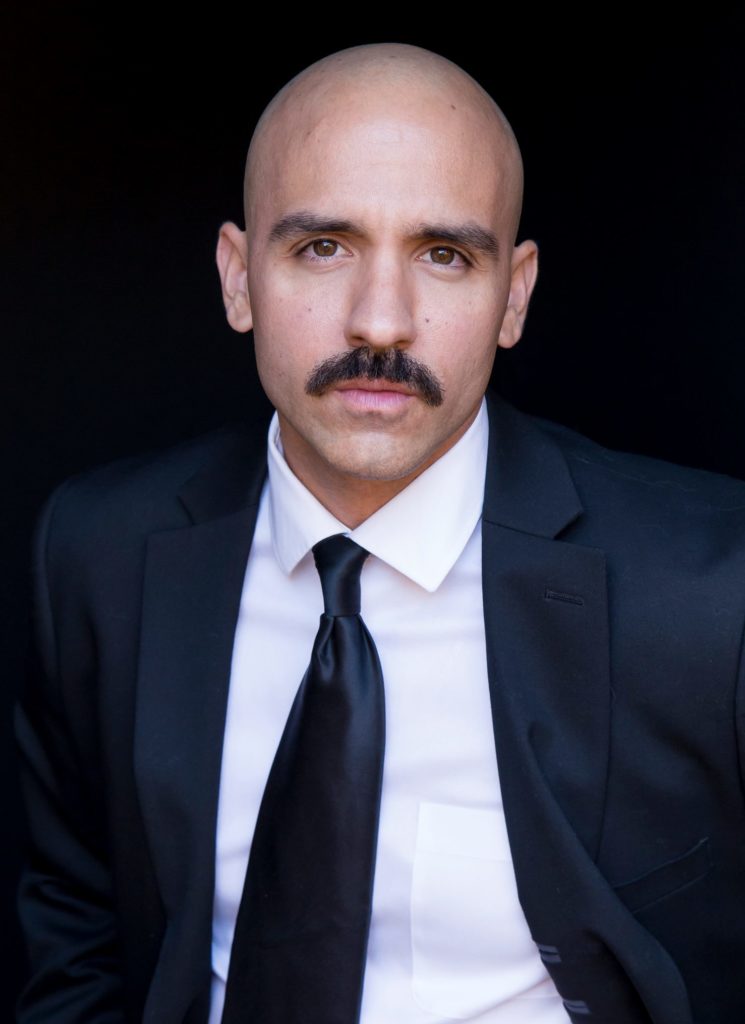
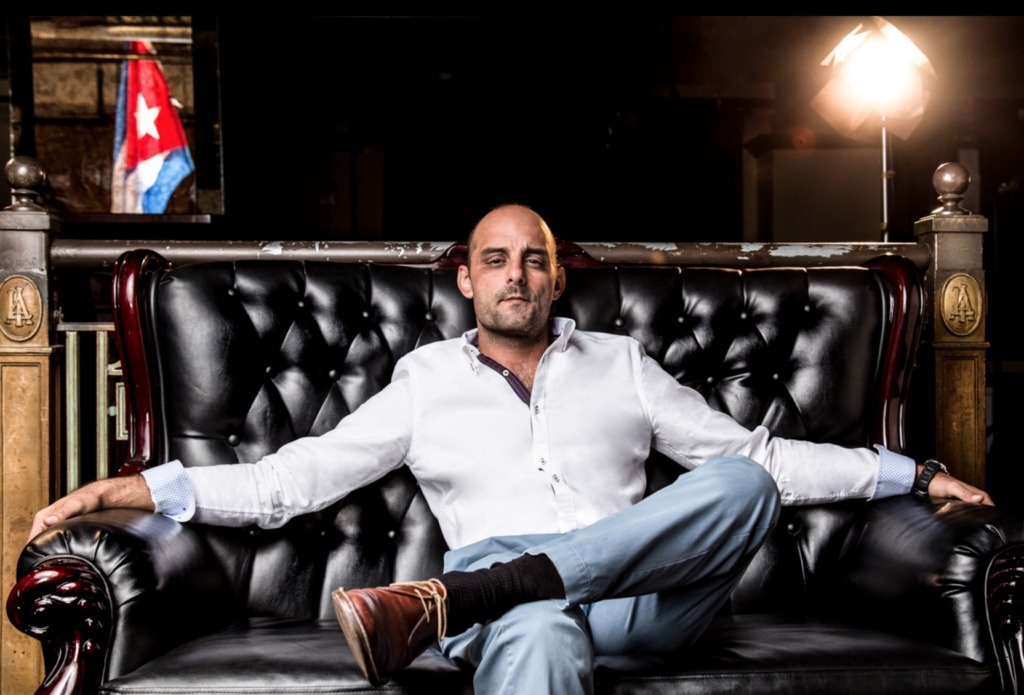
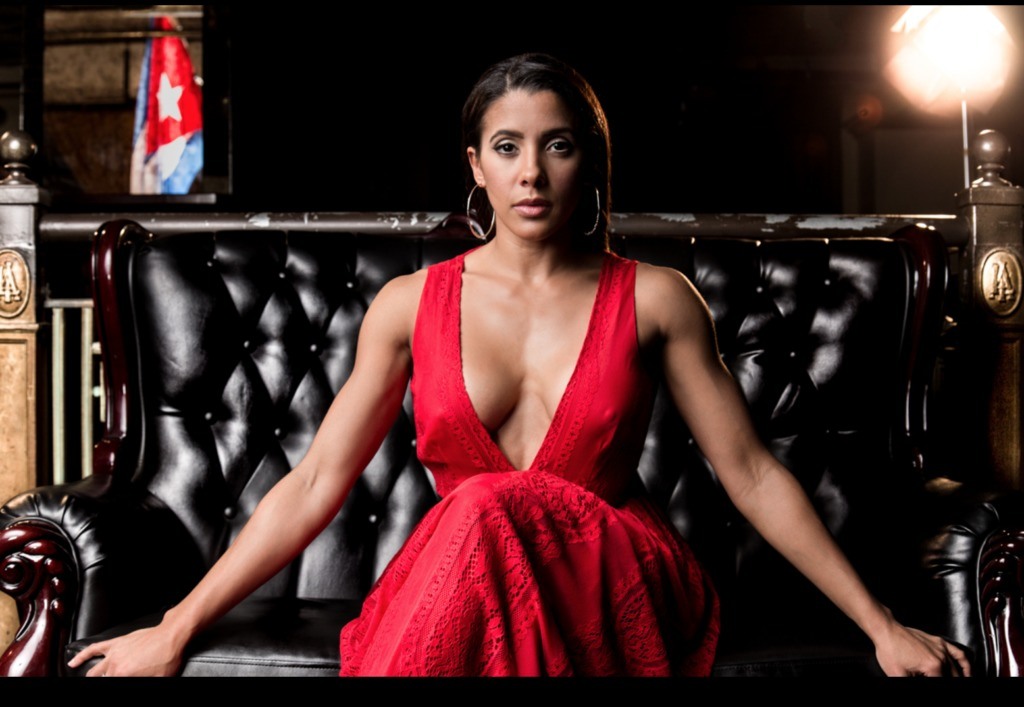
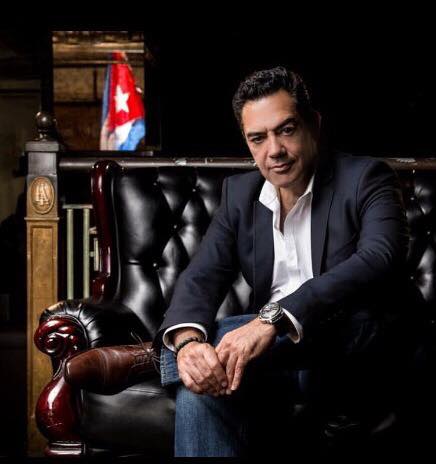
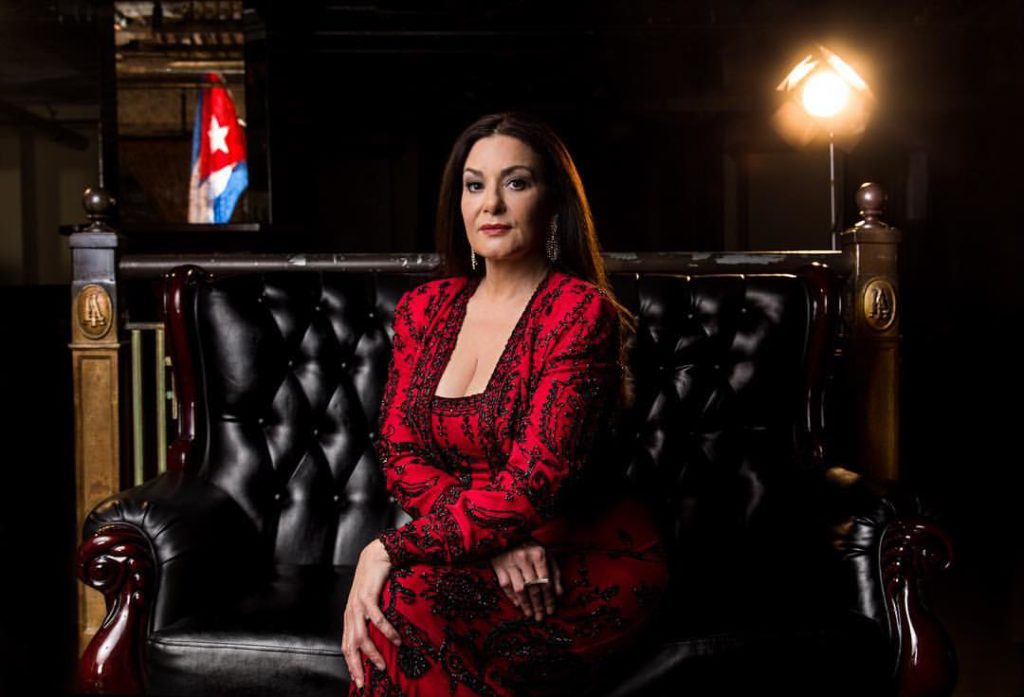
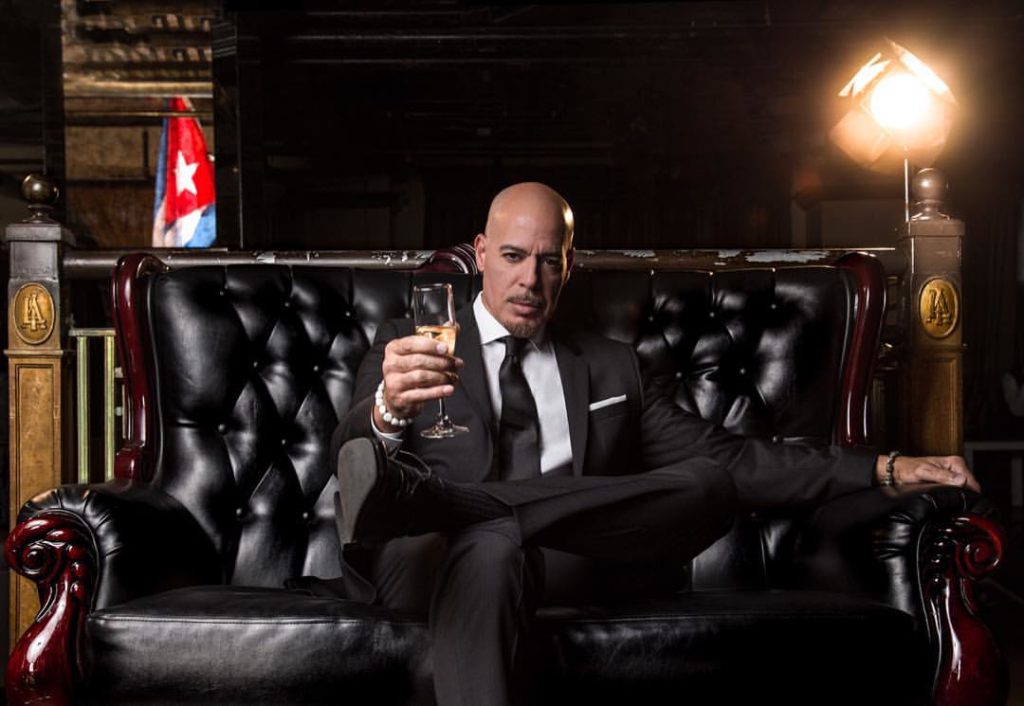
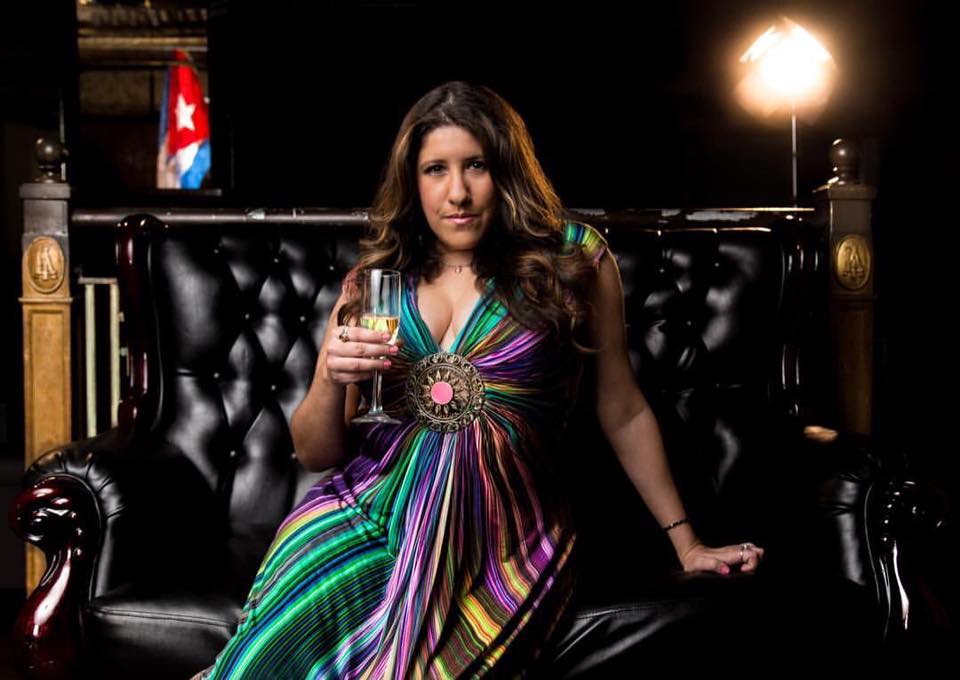
very good and a really great effort, even though I love this country if I wouldn’t have been born in Cuba, I would have love to being born there.
Of course you KNOW Babushka has to Love & Share this verdad? Ya era hora Cuban-Americans are shown having sentimientos in check and acting civilizados- especially during that very meaningful time. Gracias por compartir esto amiga. The pictures,post y timing are perfecto.